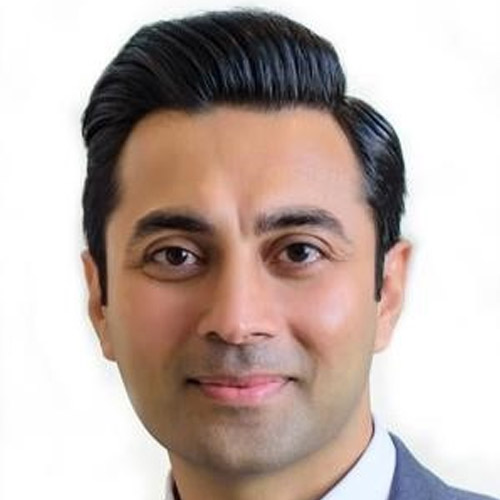BIO:
Muhammad Shafique (M’11 – SM’16) received the Ph.D. degree in computer science from the Karlsruhe Institute of Technology (KIT), Germany, in 2011. Afterwards, he established and led a highly recognized research group at KIT for several years as well as conducted impactful collaborative R&D activities across the globe. In Oct.2016, he joined the Institute of Computer Engineering at the Faculty of Informatics, Technische Universität Wien (TU Wien), Vienna, Austria as a Full Professor of Computer Architecture and Robust, Energy-Efficient Technologies. Since Sep.2020, he is with the Division of Engineering, New York University Abu Dhabi (NYU-AD), United Arab Emirates, and is a Global Network faculty at the NYU Tandon School of Engineering, USA. He is the director of the eBrain research lab, and is also a Co-PI/Investigator in multiple NYUAD Centers, including Center of Artificial Intelligence and Robotics (CAIR), Center of Cyber Security (CCS), Center for InTeractIng urban nEtworkS (CITIES), and Center for Quantum and Topological Systems (CQTS). His research interests are in AI & machine learning hardware and system-level design, brain-inspired computing, autonomous systems, wearable healthcare, energy-efficient systems, robust computing, hardware security, emerging technologies, FPGAs, MPSoCs, and embedded systems. His research has a special focus on cross-layer analysis, modeling, design, and optimization of computing and memory systems. The researched technologies and tools are deployed in application use cases from Internet-of-Things (IoT), smart Cyber-Physical Systems (CPS), and ICT for Development (ICT4D) domains. Dr. Shafique has given several Keynotes, Invited Talks, and Tutorials, as well as organized many special sessions at premier venues. He has served as the PC Chair, General Chair, Track Chair, and PC member for several prestigious IEEE/ACM conferences. Dr. Shafique holds one U.S. patent has (co-)authored 6 Books, 10+ Book Chapters, 300+ papers in premier journals and conferences, and 50+ archive articles. He received the 2015 ACM/SIGDA Outstanding New Faculty Award, AI 2000 Chip Technology Most Influential Scholar Award in 2020, six gold medals, and several best paper awards and nominations at prestigious conferences. He is a senior member of the IEEE and IEEE Signal Processing Society (SPS), and a member of the ACM, SIGARCH, SIGDA, SIGBED, and HIPEAC
SPEECH TITLE: ENERGY-EFFICIENCY FOR TINYML AND EDGEAI: A CROSS-LAYER FRAMEWORK WITH HARDWARE AND SOFTWARE TECHNIQUES
ABSTRACT:
Modern Machine Learning (ML) approaches like Deep Neural Networks (DNNs) have shown tremendous improvement over the past years to achieve a significantly high accuracy for a certain set of tasks, like image classification, object detection, natural language processing, and medical data analytics. However, these DNN require huge processing, memory, and energy costs, besides being vulnerable to several security threats. This talk will present challenges and cross-layer frameworks for building highly energy-efficient and robust machine learning systems for the tinyML and EdgeAI applications, which jointly leverage optimizations at different software and hardware layers, e.g., neural accelerator, memory access optimizations, approximations, hardware-aware NAS and network compression. These cross-layer techniques enable new opportunities for improving the area, power/energy, and performance efficiency of systems by orders of magnitude, which is a crucial step towards enabling the wide-scale deployment of resource-constrained embedded AI systems like UAVs, autonomous vehicles, Robotics, IoT-Healthcare / Wearables, Industrial-IoT, etc.

